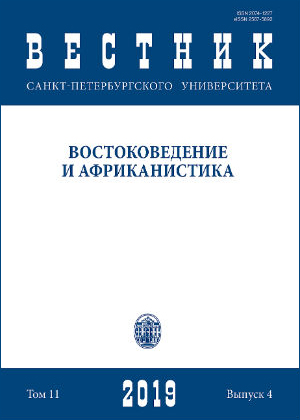African Countries in the Epoch of Information Globalization: New Challenges in the New Age
DOI:
https://doi.org/10.21638/spbu13.2019.411Abstract
The article is devoted to the problem of ensuring security of North and Central African countries in the age of informational globalization. Today there is a new up-and-coming social and economic order based on telecommunications. The central place in this new system of public relations belongs to information and communication technologies. One can observe the situation when the creation of the knowledge-based economy is turning into the main strategic priority of the policy of every country, which considers ICT as an effective tool, which can ensure a sustainable social and economic growth. But at the same time, it is necessary to keep in mind that information technologies, when used effectively, are able to destroy existing orders, to overthrow political regimes that used to be rather stable and influential. Based on case studies of North African countries, authors show key instruments that have been used in those countries in order to manage public opinion. Among those instruments authors highlight: 1) aiming for bad expectations which entails the notion of an impending disaster and mass depression; 2) substitution of definitions which supposes that in order to create positive images of the opposition that resist the governmental forces, Western mass media calls militants and terrorists “rebels”; 3) implementation of mass dissatisfaction which means the situation when popular bloggers or representatives of opposition movements begin to promote the dissatisfaction of legal power; 4) use of biased materials. In this way, authors conclude that the effective resistance in the information warfare strictly depends on the presence of a national idea on the one hand and on the level of the informational culture of the society on the other. The last point seems to be the key element that can guarantee the survival of the State, especially if it pretends to pursue self-reliant political line based on its national interests and cultural values.
Keywords:
information policy, information security, information society, African countries, information technologies.
Downloads
References
Downloads
Published
How to Cite
Issue
Section
License
Articles of "Vestnik of Saint Petersburg University. Asian and African Studies" are open access distributed under the terms of the License Agreement with Saint Petersburg State University, which permits to the authors unrestricted distribution and self-archiving free of charge.





